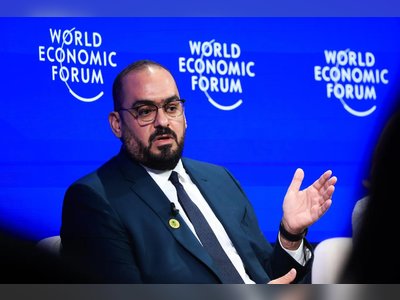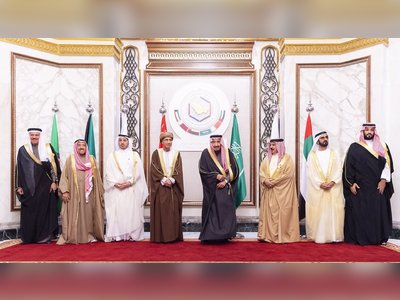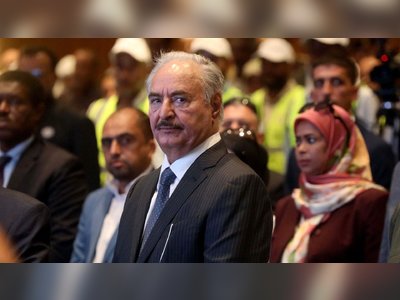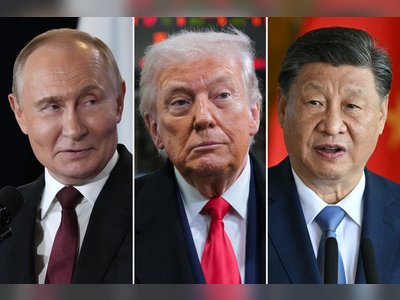Palestinians Push for UN Resolution to End Israel's 'Unlawful Presence'; Global Reactions and Regional Tensions Highlighted
Palestinians demand UN action on Israel's presence in Gaza and West Bank, while UN vaccinates 680,000 children in Gaza despite conflict.
Palestinians have circulated a draft UN resolution demanding Israel end its "unlawful presence" in Gaza and the West Bank within six months, following a ruling by the International Court of Justice deeming Israel's presence in the territories as unlawful. Israeli Ambassador to the UN Danny Danon denounced the resolution, calling it a "reward for terrorism," but UN Secretary-General Antonio Guterres stated that ICJ rulings should be accepted and implemented.
Meanwhile, in Gaza, the UN’s polio vaccination campaign has successfully immunized over 680,000 children under 10 despite immense challenges like damaged infrastructure and ongoing conflict between Israeli forces and Hamas. The campaign was crucial due to the reemergence of polio, with UNICEF officials praising the effort in light of the regional health threat.
In Lebanon, Caretaker Prime Minister Najib Mikati has called for effective UN Security Council measures to address Israeli attacks on Lebanese civilians, emphasizing the need to protect Civil Defense personnel. This appeal comes as tensions escalate in southern Lebanon with Hezbollah and the Al-Fajr Forces engaging in military confrontations with Israel, resulting in casualties and extensive damage.
Over in the West Bank, the United States has urged Israel to swiftly conclude an investigation into the killing of Aysenur Ezgi Eygi, an American Turkish activist, during a protest against settlement expansion. Both US and Israeli officials have pledged a thorough inquiry, while Turkish President Tayyip Erdogan condemned the killing and criticized Israel’s policies.
Shifting gears to international matters, Iran has denied Western claims that it supplied Russia with ballistic missiles for the war in Ukraine, following intelligence from the EU and reports from U.S. media. Iranian Foreign Ministry spokesman Nasser Kanani rejected these allegations, while the EU hinted at potential new sanctions if the claims are confirmed.
Finally, in Europe, Germany will impose tighter controls at its land borders starting September 16, to curb irregular migration and address security concerns. Interior Minister Nancy Faeser announced this policy shift, which reflects broader European challenges and comes as Chancellor Olaf Scholz’s government seeks to counter the rising influence of the far-right AfD party.
Meanwhile, in Gaza, the UN’s polio vaccination campaign has successfully immunized over 680,000 children under 10 despite immense challenges like damaged infrastructure and ongoing conflict between Israeli forces and Hamas. The campaign was crucial due to the reemergence of polio, with UNICEF officials praising the effort in light of the regional health threat.
In Lebanon, Caretaker Prime Minister Najib Mikati has called for effective UN Security Council measures to address Israeli attacks on Lebanese civilians, emphasizing the need to protect Civil Defense personnel. This appeal comes as tensions escalate in southern Lebanon with Hezbollah and the Al-Fajr Forces engaging in military confrontations with Israel, resulting in casualties and extensive damage.
Over in the West Bank, the United States has urged Israel to swiftly conclude an investigation into the killing of Aysenur Ezgi Eygi, an American Turkish activist, during a protest against settlement expansion. Both US and Israeli officials have pledged a thorough inquiry, while Turkish President Tayyip Erdogan condemned the killing and criticized Israel’s policies.
Shifting gears to international matters, Iran has denied Western claims that it supplied Russia with ballistic missiles for the war in Ukraine, following intelligence from the EU and reports from U.S. media. Iranian Foreign Ministry spokesman Nasser Kanani rejected these allegations, while the EU hinted at potential new sanctions if the claims are confirmed.
Finally, in Europe, Germany will impose tighter controls at its land borders starting September 16, to curb irregular migration and address security concerns. Interior Minister Nancy Faeser announced this policy shift, which reflects broader European challenges and comes as Chancellor Olaf Scholz’s government seeks to counter the rising influence of the far-right AfD party.











